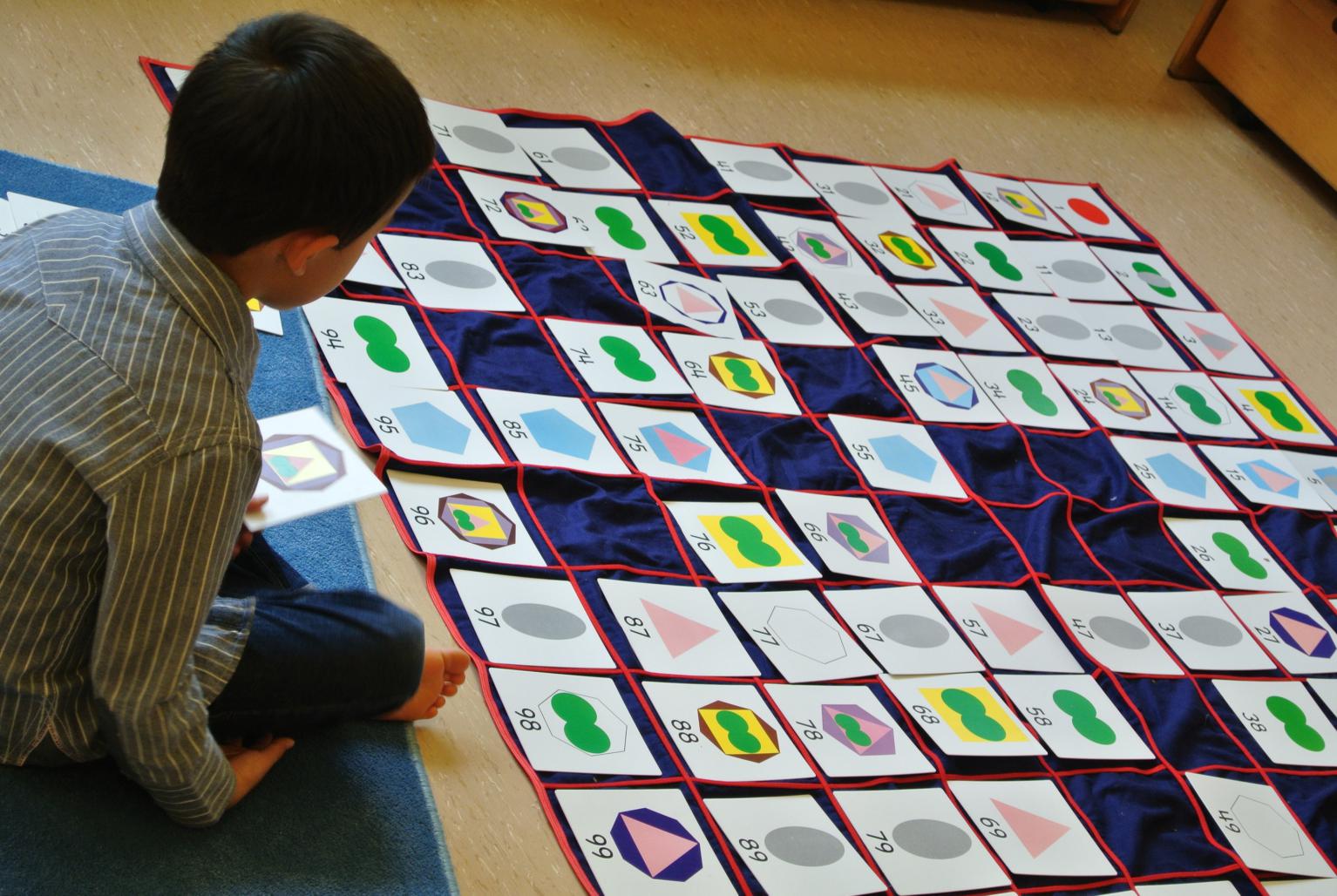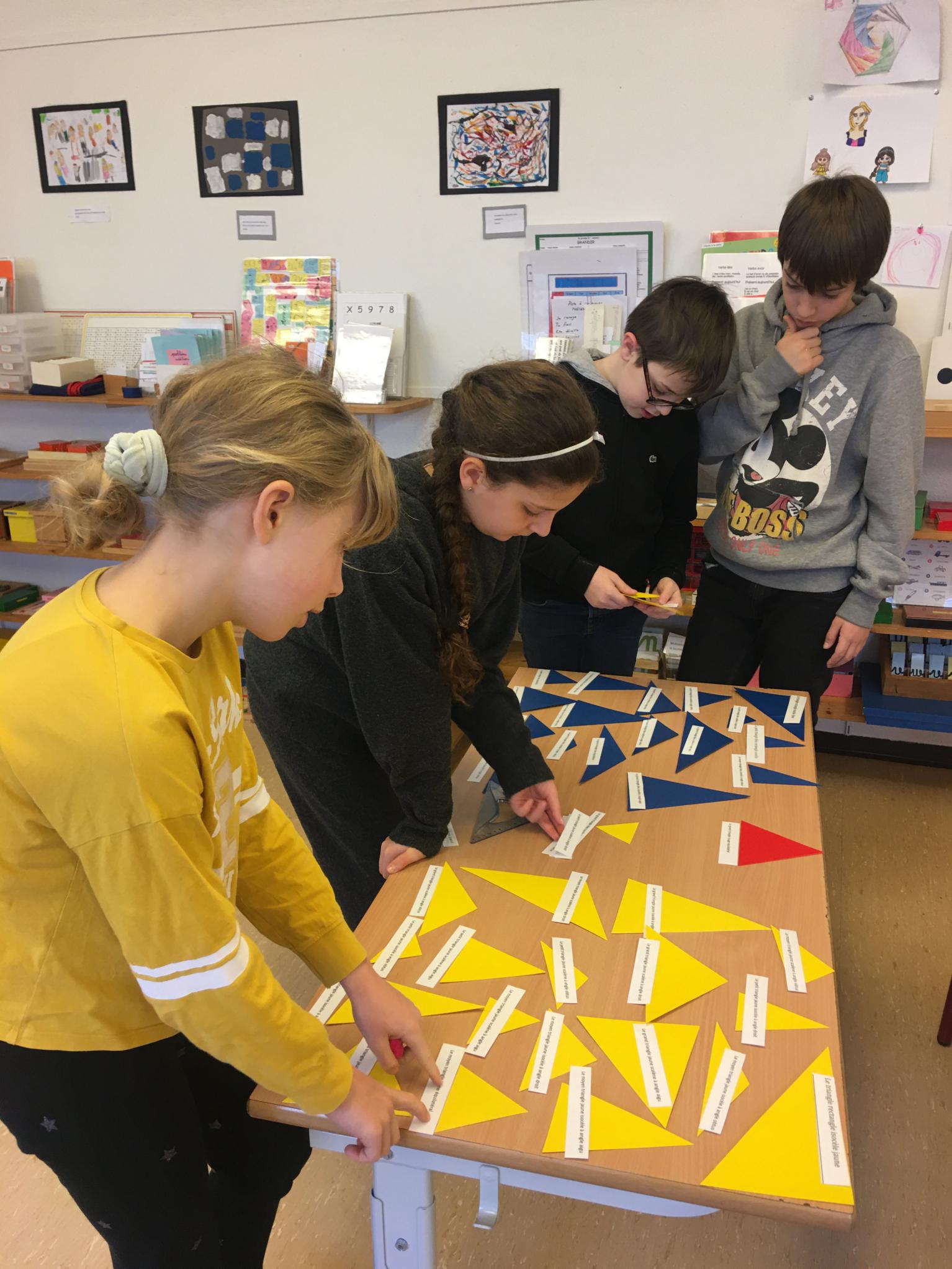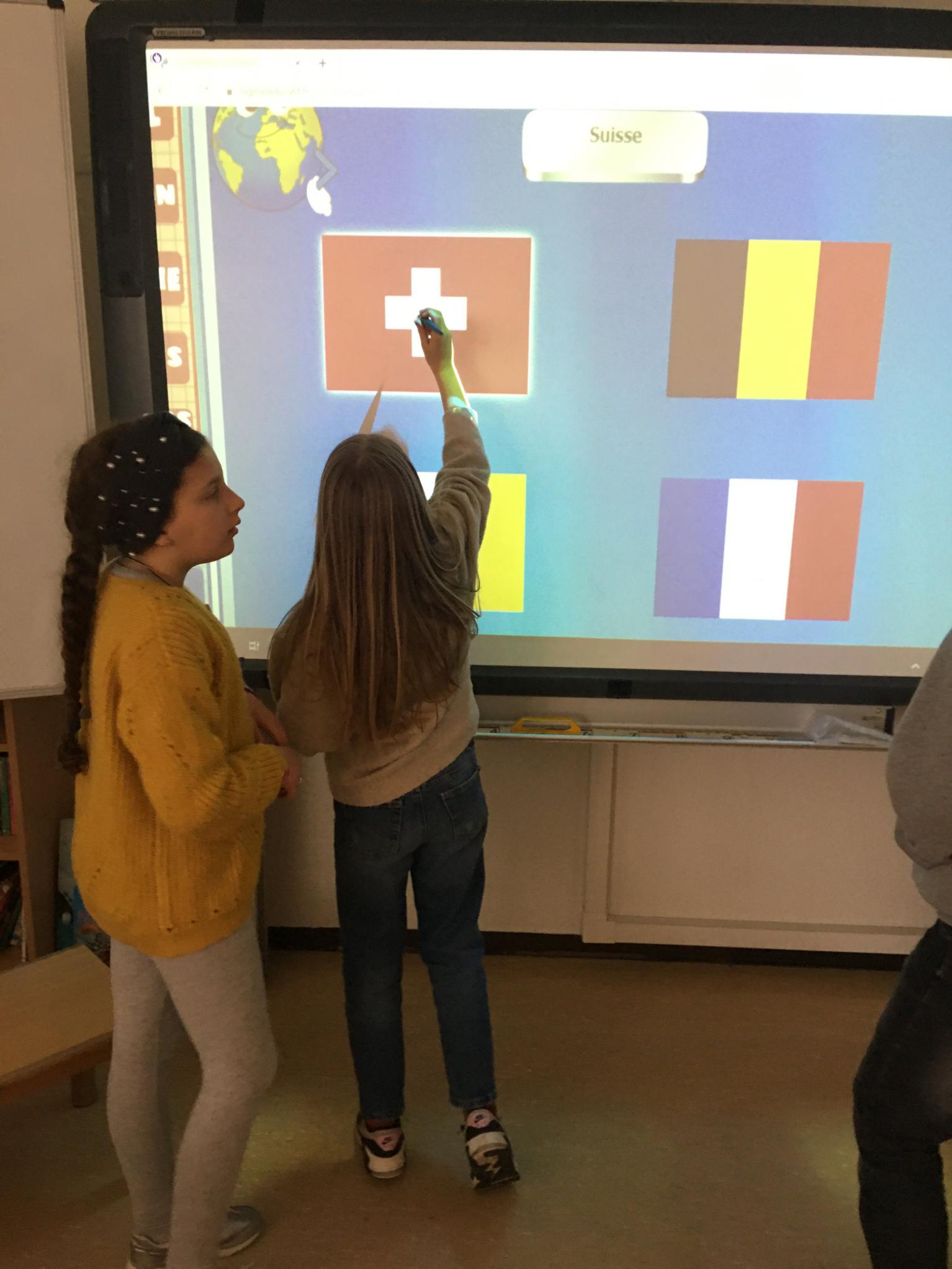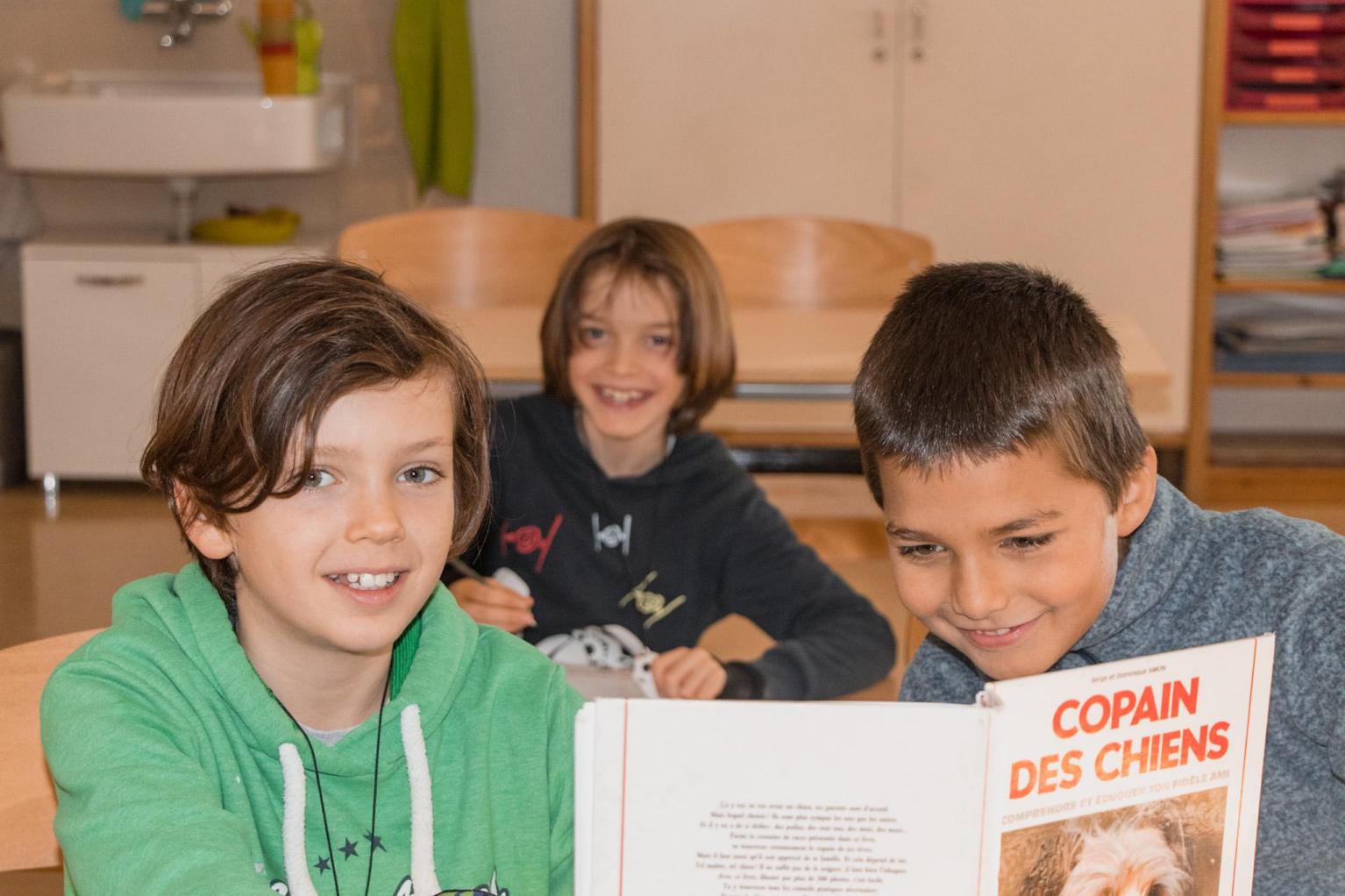UPPER ELEMENTARY SECTION 6 TO 12 YEARS
![]()
Montessori Education from Age 6: Fostering Autonomy and Curiosity
At the age of 6, the Montessori child becomes increasingly independent, mastering movement, thought, and language. This is a crucial developmental stage where children are ready to explore the world with curiosity and purpose.
In our Montessori primary program (ages 6–12), educators guide children through the discovery of their environment, encouraging them to become active researchers and explorers. The goal is to help each child understand the world around them and find their place in society with confidence and awareness.
A Curriculum that Sparks Wonder: The Great Montessori Stories
The academic year begins with the Great Stories, captivating narratives that lay the foundation for broad learning themes:
These foundational tales spark curiosity and invite students to explore deeper.
Learning Through Exploration and Key Lessons
Through short, engaging presentations—called key lessons—students are invited to revisit concepts, conduct research, or complete hands-on projects. These lessons open the door to a wide range of subjects, including:
Language development (French and English)
Mathematics and geometry
Biology, zoology, and botany
History and geography
The Montessori classroom nurtures each child’s natural desire to understand. Students are encouraged and supported in their intellectual curiosity, helping them become enthusiastic, self-motivated learners.


Montessori Materials and Social Development: Building Independence and Joy in Learning
In the Montessori environment for children aged 6 to 12, the Montessori materials continue to play a central role. These hands-on tools empower children to become autonomous learners, guiding them from concrete understanding toward abstract thinking. As the child progresses, the material becomes a stepping stone—eventually no longer needed as they reach conceptual independence.
Learning to Live with Others: Social and Emotional Growth
This develo
pmental stage is also a time when children begin to thrive in group work, collaborate with peers, and navigate social relationships. They naturally spend more time managing interactions, learning to respect shared rules, and developing their sense of responsibility.
Through this experience, each child builds self-esteem, learns from peer interaction, and gains the confidence necessary for true independence.
Key Benefits at This Stage:
Upper Elementary Montessori Classroom: A Modern, Well-Equipped Learning Environment
In our Upper Elementary program (for children aged 6-12 years), we offer four specially equipped classrooms designed to meet the unique needs and developmental stages of each pupil. These classrooms feature interactive whiteboards, tablets, and computers for controlled use, complementing traditional Montessori materials. This combination of technology and hands-on learning tools supports the Montessori philosophy and enhances the educational experience.
Key Features:
Interactive whiteboards for dynamic, engaging lessons
Tablets and computers integrated into daily learning, used responsibly and purposefully
Montessori materials for tactile, self-directed learning
Focus on individualized learning and technological integration
By incorporating both traditional Montessori and modern technology, we ensure that students have the tools they need to succeed in an ever-changing world.


English Language Learning in Montessori: Tailored, Small Group Instruction
In our Montessori Upper Elementary program, English language instruction is provided through small daily groups, ensuring that each child receives personalized attention based on their individual knowledge and abilities. Taught by a native English-speaking teacher, the focus is on fostering both oral and written communication skills.
Starting at age 6, students continue to learn to read and write in English, progressing according to their own pace. At this stage, they are able to follow the PER curriculum (Plan d’Études Romand) in English, expanding their literacy skills while aligning with educational standards.
TYPICAL PROGRAMME OF THE WEEK
Cycle 2: Montessori Mixed Age Group Class (6-9 years old) – A Holistic Learning Experience
In Cycle 2, children aged 6-9 years are placed in mixed-age group classes, fostering collaboration and peer learning. Our program runs four and a half days per week, with sports and swimming lessons included as part of the curriculum, ensuring a well-rounded education.
Grade Levels:
6-7 years old – 3P Harmos
7-8 years old – 4P Harmos
8-9 years old – 5P Harmos
Tailored Learning and Comprehensive Evaluations
Our teaching objectives are validated internally and aligned with Harmos standards, with joint DIP/Harmos evaluations ensuring educational progress.
English learning objectives are validated through the Cambridge Young Learners Exams (optional) for global recognition.
Two yearly evaluations track progress:
Oral evaluation with families in January
Written formative evaluation in June, covering the entire school year
Montessori Program Integrated with the Harmos Curriculum
Our Montessori-based program aligns with the Harmos 3P, 4P, and 5P curricula, ensuring academic growth while fostering independence and self-direction in learning.
Core Subjects and Learning Areas:
Zoology & Botany
History & Geography
Mathematics & Geometry
Reading (French and English)
Writing (French and English)
Arts & Culture
Music
Computing (Introduction to digital tools, tablets, and interactive whiteboard)
Science (Hands-on experiments)
English: Taught in small daily groups for targeted language development
German: Optional in 4P, compulsory from 5P
Supervised studies: Available from 4P
Enriching Experiences:
School outings in the fall and spring to connect classroom learning with real-world experiences
Optional school trips for further exploration of themes learned in class
Our Cycle 2 program provides a balanced, enriching education that fosters intellectual curiosity, creativity, and social development.
Ecole Montessori - Nations
Chemin Dr-Adolphe-Pasteur 13
1209 Genève
Téléphone : 022 738 81 80
E-mail : secretariat@ecoledesnations.ch
Déclaration de protection des données
Ecole Montessori-Nations - © 2016 - Tous droits réservés
Conception Web www.createur-de-site.ch